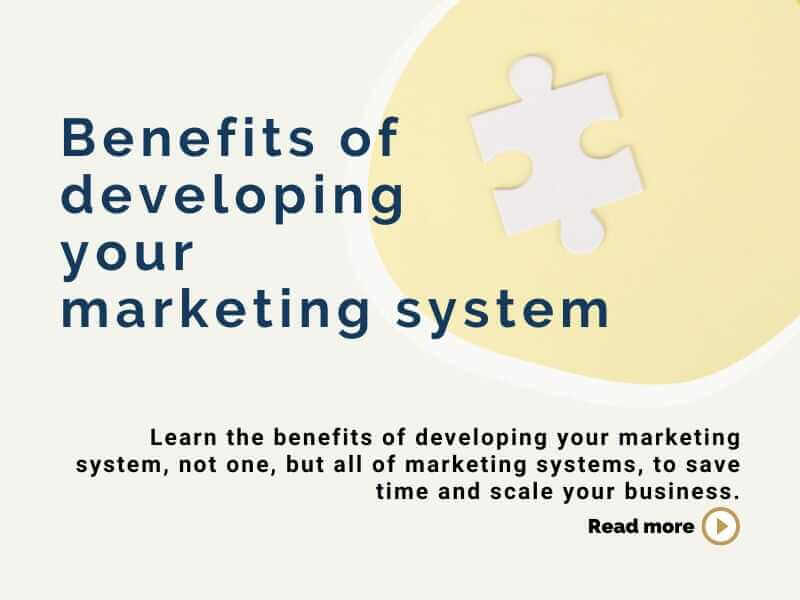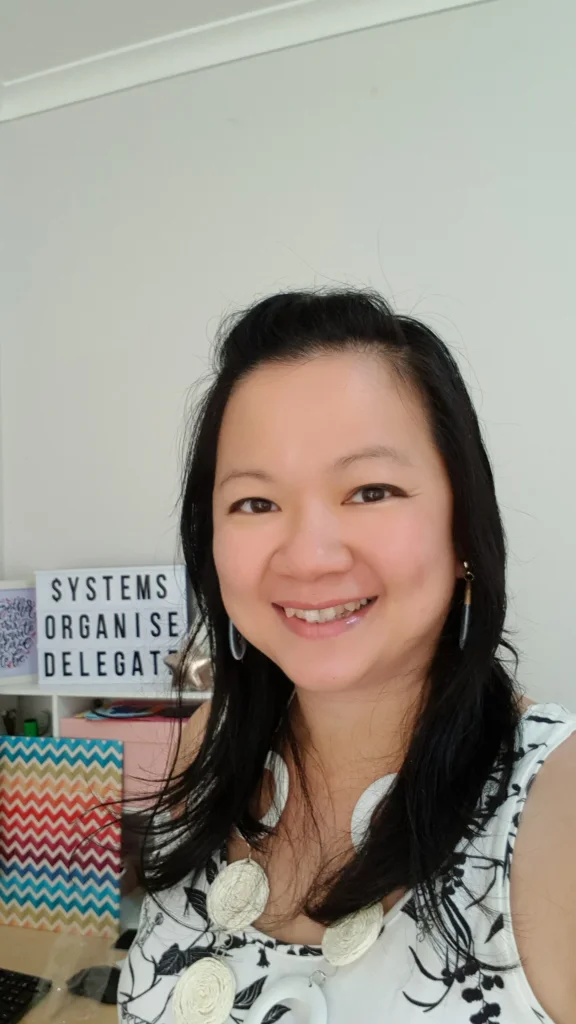Marketing system tip: Did you know, the average business puts 5-10 per cent of its revenue towards its digital marketing budget, whether it’s planned or not!
That can be quite a significant number, so you’d want to make sure your marketing works, right?
Imagine if you’re putting money into marketing strategies that aren’t working or end up costing you money. Want to know how to make sure your marketing spend gets you the rewards you’re looking for?
Read on! In this blog, you’ll learn the benefits of developing your marketing system, that’s all of them, to scale your business.
A marketing system is the key to a better business
Marketing systems are the key to scaling your business because they help you make better decisions in your business.
Wrike says: “A marketing system is a repeatable, predictable routine a marketer uses to carry out their daily work. Marketing systems are often employed by marketers hoping to replicate routines when communicating with clients, setting up social media campaigns, working with influencers, or even sending mailers to current clients.”
There are several benefits of marketing systems. The main ones include more resources, efficiency, better communications, branding, and sales. Plus, they allow you to gain insights from the marketing intelligence data you gather about your target market.
What is the purpose of a marketing system?
According to SMTUSA, “A marketing system is a set of procedures that initiate and nurture customer relationships to maximise lifetime value and generate business. It’s a step-by-step routine that creates a repeatable process that can be measured and tracked, helping your team stay accountable to objectives.“
You can read more about marketing systems and why you need them in one of my previous blogs.
Their purpose is to help you make better decisions in business and be more organised.
Related post:
Why your business needs marketing systems – Learn what a marketing system is, why it’s important, and how to get started in systemising your marketing so it works while you don’t!
Think like a marketer (even when you’re not one)
To think like a marketer, you need to know what a marketer actually does. A marketer promotes a company’s products and services. They use marketing strategies that will help take people on a journey to boost sales and revenue. They walk a fine line of being “salesy” and thinking like a customer.
The number one rule of marketing is to always focus on your target audience and customers and what they want. And they set up systems for their strategies so they don’t have to think about it!
So to think like a marketer is to think about what your audience wants, use strategies to engage your target customers and then set up systems for those strategies so those systems do the repeat work for you.
Benefits of developing your marketing system
- Rinse-and-repeat process.
- Documented processes so you are not memorising all the steps and tasks. Especially those complex ones and we’re not missing any important tasks that can hold back progress.
- Knowledge transfer so when you engage a marketing VA (like me!), you can pass on the knowledge to another person quickly and easily. It also makes for an easy handover if the team changes.
- Know where you’re at so you can streamline and improve more.
- Leverage productivity and consistency.
- Not reinventing the wheel.
- Get organised and have structure.
What this means for you as a business owner
You’ll never remember every single marketing system. Just look at how many ways there are to market your business … how can you remember the systems for every single one of these that you use?
Just check out this Hubspot article where there are 41 recommended types of marketing. Imagine if you needed to remember all of the steps in your head? It’s impossible!
If you’re ready to scale your business and get your marketing systems sorted, I’m here for you as your systems superhero.
Get in touch and we can document and systemise your marketing systems so you have repeatable processes and workflows including templates, forms, and project plans that you can use again and again.






